By Kinnukana
(ANNews) – In a powerful gathering grounded in ceremony and cultural protocol, a landmark Memorandum of Relational Understanding (MORU) was signed at Bison Lodge in Edmonton that promises to redefine the future of health research for and with Treaty First Nations communities in Alberta. The MORU is a new partnership between the First Nations Health Consortium (FNHC), the University of Alberta (U of A), and the University of Calgary (U of C) and was formalized through ceremony, shared intent, and mutual respect.
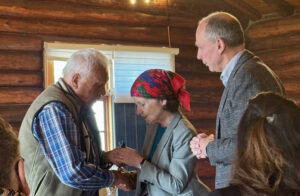
A special moment of exchange between Elder Mike Beaver and University Deans. Photo by Kinnukana.
More than just a formal signing, the event was a cultural and relational moment. Guests were welcomed with food and warmth as the sun settled over Edmonton’s river valley. As attendees gathered, an Honour Song by Chubby Cree resonated throughout the lodge, grounding the space in respect and unity. Elder Mike Beaver offered a prayer that opened the evening, bringing spirit into the room and inviting the ancestors to witness what was to follow.
FNHC leaders and emcees for the event, Dr. Tyler White and Chief Operating Officer Lorraine Muskwa, welcomed the guests, followed by opening remarks from FNHC Board Chair Randy Littlechild, Chief Executive Officer Barry Phillips, U of C’s Dean Todd Anderson, and U of A’s Dean Brenda Hemmelgarn. Each speaker emphasized that the agreement being signed was about more than health research. They emphasized that it is about relationships, reconciliation, and responsibility.
At the heart of the evening was the sacred Pipe Ceremony led by Elder Beaver, an act of spiritual commitment that gave weight to the signatures that followed. As the Pipe was shared, it was understood that what was being agreed upon was not just a partnership but a relational and ethical pledge between organizations.
The MORU itself outlines a long-term, community-led health research collaboration grounded in Indigenous sovereignty and Treaty rights. It is designed to respond to persistent health disparities by centering Indigenous knowledge, addressing service gaps, and uplifting Treaty First Nations priorities. This initiative is particularly significant in that it focuses the research paradigm on co-creation. The MORU affirms the right of Treaty First Nations to direct the research that affects them. Importantly, this partnership is framed through the lens of Ethical Space, a concept that encourages mutual respect and learning between Indigenous and non-Indigenous knowledge systems.
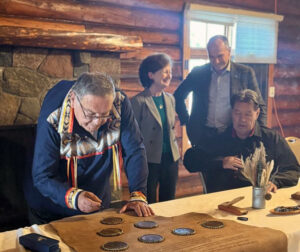
CEO Phillips, FNHC Chair Randy Littlechild and Deans of UofA and Uof C at signing cermony. Photo by Kinnukana.
In recognition of the vision that led to this historic partnership, the MORU was given a ceremonial name: the Amisk Agreement. “Amisk,” meaning beaver in Cree, was gifted earlier to FNHC CEO Barry Phillips as part of his spiritual naming. The beaver symbolizes determination, hard work, and building strong foundations, all qualities reflected in Barry’s leadership and the spirit of this agreement. Naming the MORU the Amisk Agreement honours the roots of its creation and the role Barry’s vision played in bringing the parties together in a good way.
As part of the culturally grounded signing ceremony, all partners took part in the traditional act of signing a ceremonial hide, symbolizing the living, relational nature of the MORU. This powerful gesture reflects Indigenous protocols of honouring commitments not just through paper, but through meaningful, lasting acts rooted in tradition. The hide, which will be preserved as a record of this historic moment, represents the shared responsibility, trust, and accountability between the FNHC, U of A, and U of C. By signing the hide, each partner affirmed their commitment to walk forward together in unity, respect, and relational integrity.
Randy Littlechild, Chair of the FNHC Board, emphasized the depth of the commitment: “This is about building trust and taking action. Through this partnership, we’re combining the lived experience and leadership of Treaty First Nations communities with the academic strengths of Canada’s top universities to create meaningful, measurable improvements in our children’s, youth, and families’ health and well-being.”
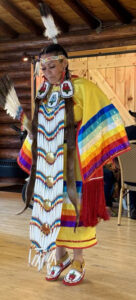
Joanna Campiou, Dancer from Alexander First Nation. Photo by Kinnukana.
For the university partners, the agreement is a clear step toward reconciliation. Dr. Hemmelgarn, Dean and Vice-Provost at the U of A, remarked, “This really is an important event. We are going to be signing a MORU and not just a standard MOU. That is important because it is all about relationships, it’s all about partnerships and trust and that’s what this signing here today will mean and what will do for us, building trust and taking action. It is important for us to work towards reconciliation in health research.”
Dr. Anderson, Dean of Cumming School of Medicine at the U of C, shared that “the University wanted to be part of this partnership for many reasons, especially because they want to have relationships with outstanding groups and the work of the FNHC aligns well with the University. Research is an integral part of both Universities and so the ability to advance research with this MORU in an area that is meaningful for everyone is a win-win-win that aligns with our values. Also, in our strategic plan we have many priorities but one of them is children’s health. We are committed to improving the health of Indigenous communities.”
Following the signing, the ceremony shifted into celebration. Powwow dancers in full regalia from Alexander First Nation brought movement and joy into the room. The evening closed with Chubby Cree’s powerful Victory Song, a symbolic affirmation of the strength and resilience of Treaty First Nations communities and the hope that this partnership represents.
The MORU marks a new chapter in how research will be done in Alberta with Treaty First Nations. It affirms that communities will not just be subjects of research, they will be leaders in health research. The MORU demonstrates that universities can be powerful allies when they approach partnerships with humility, accountability, and respect. When partnerships are grounded in ceremony and cultural values, they carry not only institutional weight, but spiritual and moral meaning as well. This signing ceremony, steeped in culture, will ensure that any following work will be done in a good way.
Kinnukana is a Local Journalism Initiative Reporter.

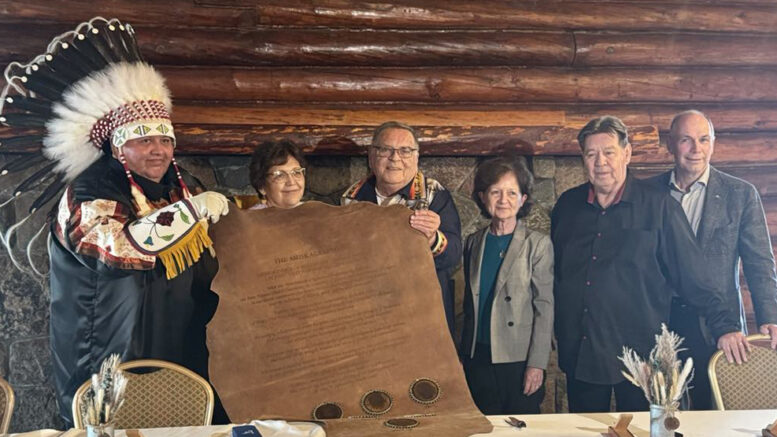

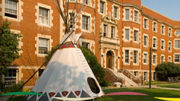
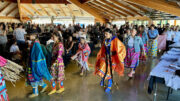
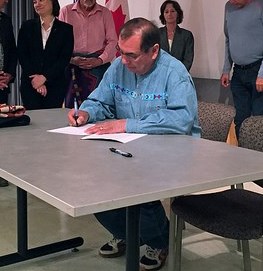
Be the first to comment on "U of A, U of C, and FNHC partner in landmark health research agreement"